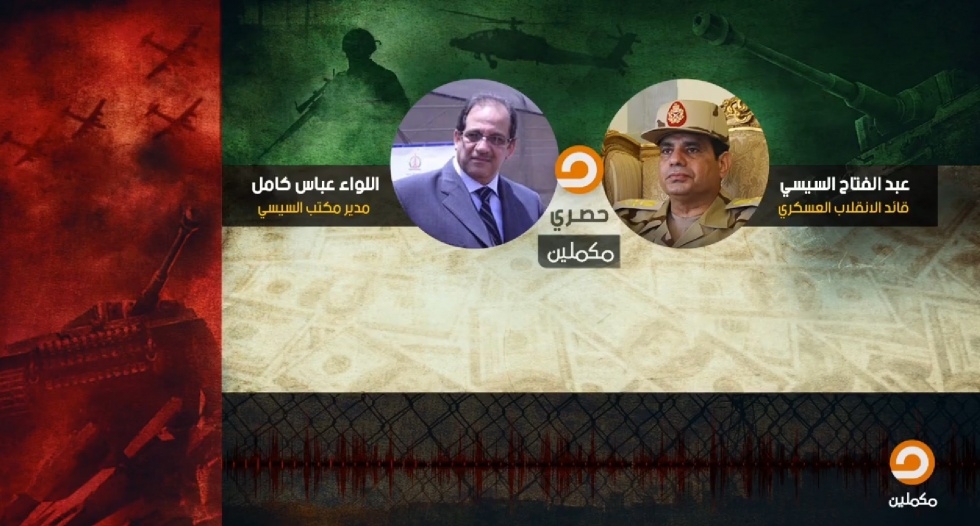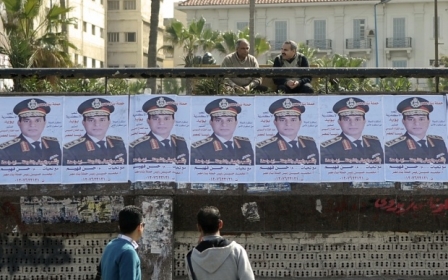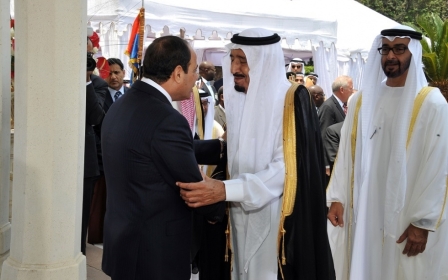Leaks allege 'dubious' Egypt-UAE deals

Officials from United Arab Emirates were involved in a number of "dubious" deals with representatives from the Egyptian military in early 2014, a series of leaks aired on Monday night allege.
The recordings were primarily attributed to Abbas Kamil, the manager of the office of President Abdul Fattah al-Sisi. Kamil was reportedly talking to Sisi, who was then the defence minister, as well as another unnamed official from the Egyptian military council.
The leaks were the second part of 70-minutes batch of recorded conversations, the first selection of which were aired Sunday night by the Turkey-based Egyptian satellite television channel Mekameleen.
The first part focused on an alleged interference by the UAE in Egyptian as well as Libyan internal affairs, according to the channel, which is known for its support of former President Mohamed Morsi, Egypt’s first freely-elected leader, who was overthrown by the army on 3 July, 2013.
Monday's leaks, however, drew attention to a number of deals that were meant to be used to prop up Sisi ahead of his election campaign. It included an ambiguous arms deal where the UAE has reportedly sent a plane carrying unspecified weapons, but which was later cancelled.
Housing and electricity projects worth billions of dollars were also discussed, ahead of unannounced visits by top UAE officials to Egypt, but the beneficiaries of those plans were not the Egyptian public – as Sisi's election campaign promised – but rather the military institution, according to Mekameleen.
One leak also purportedly showed Kamil and Sisi speaking in an unflattering way of the Emiratis, while another suggested that Kamil along with some members of the military council were taking tramadol pills to calm their nerves during testing times.
New MEE newsletter: Jerusalem Dispatch
Sign up to get the latest insights and analysis on Israel-Palestine, alongside Turkey Unpacked and other MEE newsletters
Middle East Eye delivers independent and unrivalled coverage and analysis of the Middle East, North Africa and beyond. To learn more about republishing this content and the associated fees, please fill out this form. More about MEE can be found here.




